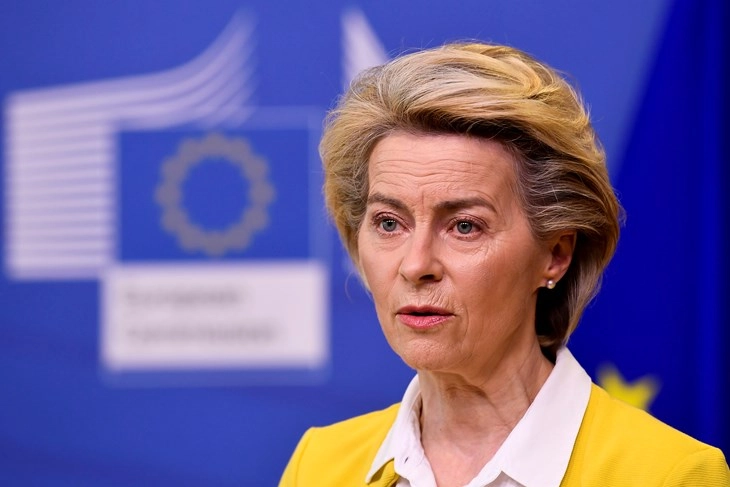Von der Leyen: EU must be prepared for the worst-case gas scenario
- Post By Ivan Kolekevski
- 16:31, 25 July, 2022

Brussels, 25 July 2022 (dpa/MIA) - Europe is hastily reducing its dependency on Russian gas amid fears supplies will be halted in retaliation for sanctions. In an interview with dpa, European Commission President Ursula von der Leyen calls on members to back a crisis plan that is proving to be a test of solidarity.
dpa: Last Wednesday, at the launch of the commission's winter gas emergency plan, you said that it is likely that Russia will completely halt gas supplies to the EU. Is that still your assumption after deliveries resumed through Nord Stream 1 after a period of maintenance that many feared could be extended indefinitely?
Von der Leyen: Our package is precisely about making us independent of such decisions by the Kremlin. After all, it's obvious: The Kremlin is not a reliable partner for Europe's energy supply. Gazprom has deliberately kept its storage levels low. In the meantime, Russia is supplying 12 member states only partially with gas or not at all.
That's why Europe must be prepared for the worst-case scenario: a complete halt to gas supplies, sooner or later. To cushion the consequences of this, we need to save 15% of our gas consumption by March next year. That's 45 billion cubic meters of gas. And we should start immediately, because the faster we act, the more we save - and the safer we are.
dpa: The rapid rise in gas and electricity prices is having an impact not only on businesses but is hitting low-income households and families the hardest. Do you think there should be a price cap for gas? And if not, what can be done in your view at a European level to prevent energy poverty?
Von der Leyen: The heads of state and government asked the commission to look into a price cap for imported gas. We are currently doing that. At the same time, we are well aware of the difficulties faced by lower-income households.
That's why back in October - long before Putin's war - we presented a whole tableau of ideas that member states could use to counter price increases. And the vast majority of EU members are making use of them.
At a European level, for example, we have also temporarily adapted our state aid rules to provide support and we have set up an energy platform to jointly buy gas and negotiate good prices for consumers in Europe.
And beyond that, in the wider context of our European Green Deal, we are working to ensure that all Europeans benefit from the transition to a climate-friendly future. A social climate fund worth many billions of euros will help lower-income households, for example, to buy more environmentally-friendly cars or switch to more economical heating.
dpa: Do you think it is a good idea to allow German nuclear power plants to run for longer than originally planned, rather than phasing them out, so we can manage without electricity from gas-fired power plants, in the case of an emergency?
Von der Leyen: This is a question every EU member state must answer for themselves. The energy mix is the responsibility of the EU member state. However, probably like you, I also observe that many EU members who see nuclear energy as a necessary bridging technology.
For me personally, the first priority is that we invest as much as possible in renewables in Europe, because that's the future.
dpa: Hungary recently announced that it would ban the export of natural gas, making it clear that it does not want to participate in a European solidarity mechanism in the event of a crisis. Can Hungarian Prime Minister Viktor Orbán be forced to do so if other member states need it? And how do you explain to the people of Spain, for example, that they should save gas because Germany has become dependent on Russia despite warnings?
Von der Leyen: It is true that some member states are more affected by a disruption in Russian gas supplies than others. But even member states that barely purchase any Russian gas cannot escape the consequences of a possible supply cut in our internal market.
The EU internal market is the heart of our economy, and our economies are closely intertwined. A gas crisis would therefore affect every single member state in one form or another.
It is therefore important that all member states curb demand, that all store more and share with those members that are more affected. Energy solidarity is a fundamental principle of our European treaties. Our existing regulation on gas security of supply therefore already provides that member states can count on each other.
The emergency instrument we proposed on Wednesday complements this regulation and is now going through the usual legislative process. I am sure that the energy ministers meeting on Tuesday are aware of their responsibility. We want to cast a safety net for everyone so that we can make it safely through the next two winters, all 27 member states together.







